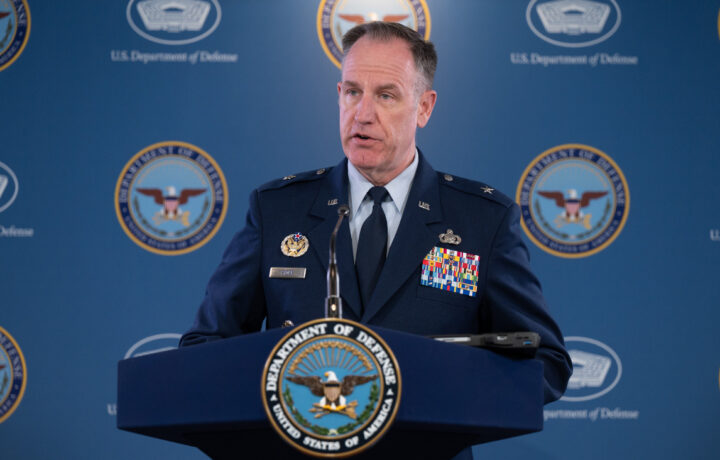Pentagon Press Secretary Air Force Brig. Gen. Pat Ryder shared in a press briefing last week that the U.S government is working with interagency partners and the Intelligence Community (IC) to get to the bottom of the leaks. But in the meantime, Ryder calls the actions of Jack Teixeira a deliberate, criminal act, violating the guidelines we have in place for safeguarding classified and sensitive information. While the courts now oversee the process with Teixeira, the Ryder confirmed that the DoD is doing “everything we can to ensure that the people who have a need to know when it comes to this kind of information have access to that.”
But he also noted that if classified documents show up in the media or on a website, they’re still to be treated like classified information. He noted that classified documents in the media may not be read or downloaded by service members or DoD employees.
“Just because classified information may be posted online or elsewhere does not mean it has been declassified by a classification authority,” Ryder said. “We’re just not going to discuss or confirm classified information due to the potential impact on national security, as well as the safety and security of our personnel and those of our allies and our partners.”
Layoffs: QuaDream
Israeli cyber company, QuaDream, is closing up shop. The employees were all laid off, and the organization will stop operating in the days ahead. Following notifications that the hacking tools had been alleged to be used against journalists or different figures in 10 different countries, QuaDream moved towards shutting down. QuaDream was a low-profile competitor to the other spyware company – NSO Group.
Hiring: DoD
The DoD is ramping up their AI hiring. Posts on USAJOBS in recent weeks show an increase in AI jobs for the Pentagon. From data scientists to technologists to engineers, the DoD is looking to add AI to our military capabilities. Jobs are all over the country, and many are easily in the six-figure salary range. Whether you want to work for the DoD’s Chief Digital and Artificial Intelligence Office (CDAO) or the U.S. Army’s Futures Command or the Air Force, technologists can find a variety of jobs at different levels. Even the National Geospatial-Intelligence Agency (NGA) is hiring for a senior scientist who can use “machine learning and artificial intelligence methods to automate the analysis of images, video or other sensor data; modeling for anticipatory intelligence; human-machine teaming.”
Cleared Employer at Work: CISA
Opportunity to Watch
Maxar’s recent acquisition – Aurora Insight – has received a Stage II contract extension from the National Reconnaissance Office (NRO) for commercial radio frequency (RF) remote sensing.
Aurora Insight, now part of Maxar’s Earth Intelligence business, was previously awarded the NRO’s Strategic Commercial Enhancements Broad Agency Announcement (BAA) Framework Stage I contract, which focused on the modeling and simulation of its capabilities to support the U.S. government’s current and future commercial RF reconnaissance needs. The Stage II option provides Maxar the opportunity to demonstrate real-world performance of its commercial RF constellation to support U.S. government missions.
Maxar will demonstrate how space-based mapping of the world’s RF environment can enhance and augment existing capabilities. Maxar’s RF measurements span a wide range of frequencies that include LTE, 5G, satellite communications, radars, GPS and other types of signals, and these measurements are being applied to commercial and government use cases. The Stage II award is an important step in getting commercial RF data to U.S. government users.
“We are honored to have the opportunity to demonstrate the value of commercial RF data to support key U.S. government mission needs,” said Tony Frazier, Maxar’s Executive Vice President and General Manager, Public Sector Earth Intelligence. “We are particularly excited to integrate RF capabilities with our industry-leading satellite imagery, 3D data, and analytics.”




